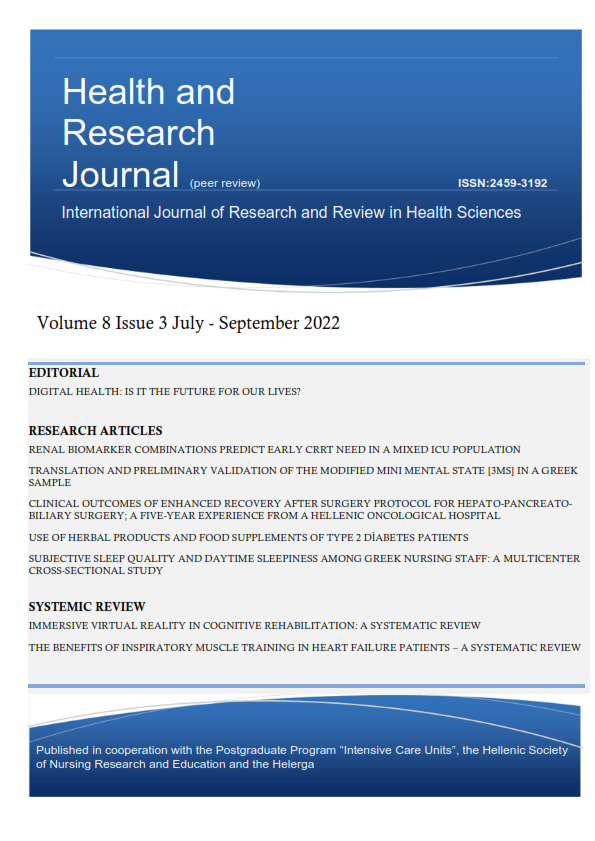Translation and preliminary validation of the Modified Mini Mental State [3MS] in a Greek sample

Abstract
Background: The Modified Mini Mental State (3MS) is the extended version of the original Mini Mental State test with additional items improving the coverage of the remaining cognitive functions of the original version.
Aim: The aim of this pilot study is to translate the Modified Mini Mental State test and assess its psychometric properties, in order to enable the use of 3MS test for Greek speakers.
Method and Material: Independent sample t-test analysis was performed to test for differences between the study groups (N=105) and dependent sample (N=37), while pair sample t-test for pre-post differences in the treatment group for the 3MS.
Results: Cronbach’s a was 0.867 showing very good internal consistency. Children in the cases group presented significantly lower scores after the tonsil operation as compared to controls revealing good discriminant validity of the measurement. Finally, test-retest scores were shown to be significantly correlated, revealing excellent test-retest reliability of the measurement.
Conclusions: The reliability and validity of the 3MS test is established for the healthy children undergoing routine surgery population.
Article Details
- How to Cite
-
Lyrakos, G. N., Nikolaidou, G., Alizioti, A., & Matsota, P. (2022). Translation and preliminary validation of the Modified Mini Mental State [3MS] in a Greek sample. Health & Research Journal, 8(3), 179–187. https://doi.org/10.12681/healthresj.27991
- Section
- Original Articles
Copyright notice:
Authors retain copyright of their work and grant the Health and Research Journal the right of first publication.
License:
Articles are published under the Creative Commons Attribution 4.0 International License (CC BY 4.0). This license permits use, sharing, adaptation, distribution, and reproduction in any medium or format, including for commercial purposes, provided that appropriate credit is given to the author(s) and the original publication in this journal, a link to the license is provided, and any changes are indicated.
Attribution requirement:
Any reuse must include the article citation and DOI (where available), and indicate if changes were made.


